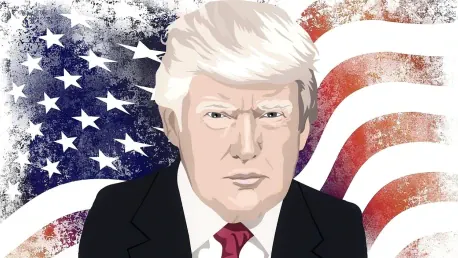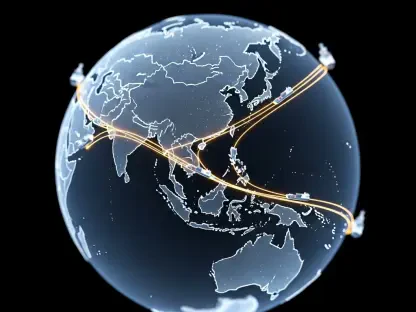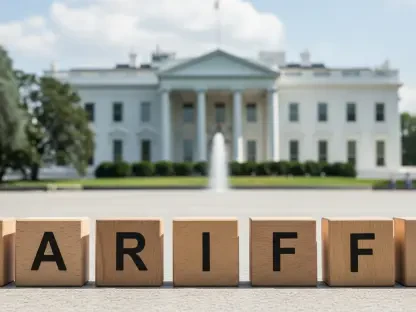In a recent move aimed at reinforcing his trade policies, President-elect Donald Trump has appointed Peter Navarro as the “Senior Counselor for Trade and Manufacturing.” Trump highlighted Navarro’s extensive experience in trade policy and his media savviness via an announcement on Truth Social, reflecting on the importance of Navarro’s role in shaping U.S. trade strategy. However, there is uncertainty surrounding whether this position will have cabinet-level status and how it will coordinate with the U.S. Trade Representative (USTR) and the Department of Commerce.
The Role of Peter Navarro
Extensive Experience in Trade Policy
Peter Navarro’s previous involvement in trade negotiations positions him as a strong asset in advancing Trump’s trade, tariff, and manufacturing agendas. Navarro previously played a vital role in renegotiating major trade agreements, including the North American Free Trade Agreement (NAFTA) and the U.S.-Korea Free Trade Agreement. His expertise was instrumental in securing South Korea’s exemption from steel tariffs in exchange for limiting steel imports to the U.S. Furthermore, his understanding of complex trade dynamics has been acknowledged as critical for the United States in maintaining trade equilibrium.
Navarro’s new appointment comes at a crucial time when heightened tariffs and aggressive trade policies continue to be central to Trump’s agenda. These policies involve drastic measures, such as threatening 100% tariffs on BRICS countries like Russia and China if they scale back their reliance on the U.S. dollar. Navarro’s role will involve not only formulating but also effectively communicating and defending these aggressive trade positions, ensuring that they align with broader economic goals. His presence in the administration underscores a recommitment to a stringent trade policy with a focus on protecting American manufacturing and jobs.
Challenges and Controversies
Navarro’s reappointment is occurring against a backdrop of significant personal controversy. After having served a four-month prison sentence for contempt of Congress due to his failure to comply with a subpoena related to the investigation of the Jan. 6, 2021, U.S. Capitol attack, his standing has been contentious. Despite these challenges, Navarro remains a key figure in Trump’s administration, demonstrating a considerable degree of loyalty and trust from Trump. These dynamics add a layer of complexity to his role and the execution of his duties in advancing the trade agenda.
Nonetheless, Navarro’s controversial past does not deter Trump from leveraging his background and capabilities to pursue aggressive tariff proposals and renegotiation tactics. This includes raising tariffs on goods imported from countries like Canada, Mexico, and China, all of which are significant trade partners of the United States. Navarro’s direct influence will be crucial in navigating the challenges posed by these aggressive strategies, balancing the act of retaliatory measures, and ensuring minimal adverse effects on American consumers and businesses. His task will also involve collaborating with other appointed officials to streamline U.S. trade negotiations and enforce these policies.
Collaboration with New Appointments
Key Nominees for Strategic Trade Positions
Trump has also announced key appointments to strengthen his trade and economic policy framework. Naming Jamieson Greer, an international trade lawyer, as his nominee for USTR signals a strategic move to bolster legal acumen within trade policy leadership. Greer’s background in international trade law is expected to complement Navarro’s policy-driven approach, ensuring the administration’s decisions are legally sound and effectively implemented. This collaboration is likely to drive forward Trump’s vision for trade while navigating the complex legal landscapes of international agreements.
Additionally, Howard Lutnick, CEO of Cantor Fitzgerald, has been appointed to lead the Commerce Department. Lutnick’s experience within the financial services industry brings a different yet complementary skill set to the team. His background may facilitate smoother coordination between financial markets and trade policies, contributing to a cohesive economic strategy. This blend of legal expertise, trade policy experience, and financial leadership is anticipated to create a robust framework for achieving Trump’s ambitious trade objectives, emphasizing the importance of aligning various aspects of the administration’s strategy.
Impact on Future Trade Policies
The integration of these new appointments into the administration highlights a reinforced commitment to Trump’s economic and trade goals. Each official brings a unique perspective and set of skills aimed at driving forward the administration’s agenda. Navarro’s collaboration with Greer and Lutnick is poised to foster a consolidated approach towards tackling trade issues with a stringent, protective stance. This synergy is expected to yield more effective renegotiations and enforcement of trade agreements, promoting American manufacturing and broader economic growth.
The focus remains on aggressively pursuing policies that support domestic industries while imposing retaliatory tariffs to combat unfair trade practices. Coordination among these key figures will be vital to navigate the implications of higher tariffs and potential pushback from international trade partners. The administration aims to project a united front in its dealings, ensuring that aggressive policies are effectively put into action without compromising long-term economic stability.
Strategic Outlook for U.S. Trade
Aggressive Tariff Policies
Moving forward, Trump’s administration is expected to continue leveraging aggressive tariffs as a tool to advance its trade policies. These measures aim to protect American industries and reduce dependency on foreign goods. The threat of imposing substantial tariffs on BRICS countries if they decrease reliance on the U.S. dollar exemplifies a tactic to apply pressure and maintain economic leverage. Additionally, raising tariffs on goods from Canada, Mexico, and China reinforces Trump’s commitment to renegotiating trade terms that favor American economic interests.
The implementation of these tariff policies requires robust defense and clear communication, roles that Navarro will play an integral part in. His ability to articulate the rationale behind such measures and mitigate potential backlash from affected countries will be crucial. Additionally, managing domestic responses to higher tariffs, such as potential increases in consumer prices, will need careful navigation. Ensuring that American industries benefit from these policies without adverse impacts on the broader economy will be a challenging yet essential aspect of his mandate.
Long-term Economic Implications
In a recent effort to bolster his trade policies, President-elect Donald Trump has named Peter Navarro as the “Senior Counselor for Trade and Manufacturing.” Trump announced this decision on Truth Social, singling out Navarro’s extensive experience in trade policy and his aptitude in media interactions. Trump emphasized the significant role Navarro will play in shaping the U.S. trade strategy moving forward. However, there remains some ambiguity regarding whether this new position will hold cabinet-level status and how it will coordinate with other pivotal entities like the U.S. Trade Representative (USTR) and the Department of Commerce. This uncertainty underscores the complexity of implementing cohesive trade policies, especially in an administration that seeks to redefine its approach toward global trade. As Navarro steps into this influential role, stakeholders will closely observe how his policies align with the broader objectives of Trump’s administration and the potential impact on international trade relations.









